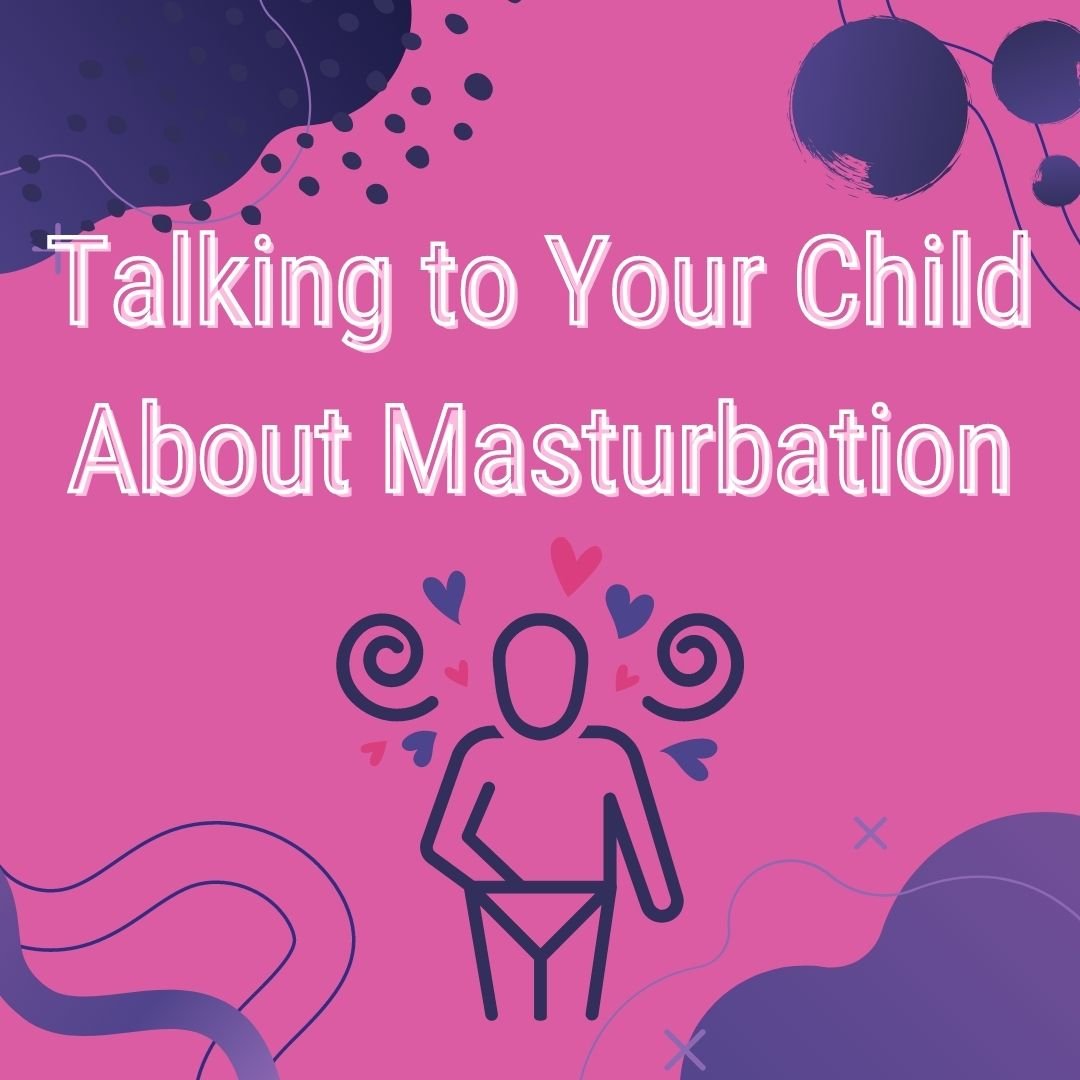There is no ‘correct age’ to discuss masturbation with your child. As a parent, you know your child best, but these conversations are paramount to a child’s–and adult’s–healthy sex life. Dr. Rachel Wright, psychotherapist, states that you should “have the conversations when you feel it will be the most beneficial instead of paying attention to a specific age.” Some toddlers and preschoolers begin touching their genitals at a young age, others aren’t seen to do this until older. If you notice this, then this is the best time to discuss masturbation with your child. If you have not noticed your child doing this, then the best time to discuss this with them is as they are nearing puberty, family therapist Whitney states. When you feel the time has come to begin these discussions, the major points to hit are: Normalize masturbation, set boundaries around masturbating, and the safety and health benefits of masturbation.
The main point of having this conversation is to normalize the act and teach about safety, and consent. There is no need to go into detail about masturbation, the main purpose of this conversation is to normalize it, regardless of the child’s age. Make sure to reinforce that there is nothing wrong with it; that it is a healthy thing to do and a great way to learn about your body. It is likely that your child may respond in a negative way, telling you that it’s ‘embarrassing’ to discuss, but that is okay. The importance is making “the point that self-pleasuring is nothing to be ashamed of,” Whitney says. When having this conversation, make sure to keep it calm but casual, a safe and comfortable environment may make your child more receptive to the talk.
Setting boundaries about masturbation is an additional paramount point to discuss with your child. The main boundary that should be discussed is that of privacy, it is not appropriate for masturbation to take place in public places such as the dining room table. It can be difficult to explain that masturbation is normal, but not something that should be done in public. Wright explains a good analogy to explain to your child is that of going to the toilet. “Just like we don’t go potty in the middle of the grocery store, we don’t stick our hands in our pants in the grocery store either.” Your child is aware that going to the toilet is completely natural, and hence this makes more sense to the child. The reminder can further be shortened to “private places, private spaces.” Positively reinforce that the penis or vulva is part of their private body, and hence touching themselves is a private activity. If your child has a vulva, you may want to express the importance of washing their hands and making sure their nails are short before exploring themselves. Teaching your child about hygiene and masturbation is just as important as teaching about privacy
Safety is another topic that should be discussed, especially if your child has a vulva. Review with them what is safe to put near or in their vagina. Talking about masturbation provides a great opportunity to talk about consent and boundaries. Wright suggests asking your child whether they would force themselves to masturbate if they didn’t want to. From there, go on to discuss how we do not ever force someone to do something they don’t want, nor allow someone to touch our bodies in a way that makes us uncomfortable. Sex educator Melissa Carnage explains “when young people are more informed and confident about their bodies, they are better positioned to advocate for consensual, safer and more pleasurable sex as an adult.”
There are many health benefits associated with masturabation, these may be things you might want to bring up when discussing masturbation with your child. Masturbation is thought to reduce stress and anxiety due to the release of dopamine and oxytocin, also known as “happy hormones.” The release of these hormones can provide a ‘natural high’ which in turn can make you feel happier. Masturbation is a safe way to explore and increase awareness of what sensations you like and how you enjoy being touched. A 2019 study further concluded that “orgasms achieved through masturbation were associated with the perception of better sleep quality.” Masturbation can further aid in increasing your control of your pelvic floor and reduce menstrual pain. To learn more about masturbation, check out Alyssa’s article: Masturbation 101!
It is no secret that there are flaws in sex education. There are many topics not discussed, or if they are brought up, not discussed in enough detail. My sex education (based in England) was extremely poor. We watched a video of a woman giving birth, told very briefly about periods and that is about it. A few years later when I was around 14, we were given a demonstration on how to put on a condom and thrown a box of period products by a very uncomfortable male teacher. There was never any mention of masturbation, and hence I have zero clue what it was until many years later. Due to these flaws in the sex education curriculum, it often falls down to the parents’ or guardians’ responsibility to teach the child about masturbation. Though bringing up the topic of masturbation may be awkward at first, it is ultimately an essential one to have in order to teach your child about their sexual health. As we have seen, the main lesson to teach in this conversation is that masturbation is normal and nothing to be ashamed about.
By Stephanie McCartney




